Can Children Testify During Their Parents’ North Carolina Divorce Proceedings?
At Daly Mills Family Law, our Mooresville divorce attorneys know how difficult family law matters can be for both parents and their children.
As family dynamics change, so will the way — and the where — the kids live their lives, once child custody decisions are made. For North Carolina spouses who cannot establish custody, visitation, and parenting plans in private or during mediation, the courts will decide for them during litigation.
The bigger question becomes, can your children testify in front of a judge, and establish which parent they choose to live with?
The answer is, it depends. Our Iredell County family law attorneys explain.
Are Children Allowed to Choose Which Parent They Live With in North Carolina?
The North Carolina family courts will always rule in the best interests of the children.
That typically requires reviewing any relevant evidence regarding each parent’s behaviors, and overall ability to care for their children full time.
In some cases, that means the children may be permitted to testify in court and express their wishes.
In North Carolina, there is no specific age at which a child may testify. Instead, it is up to the judge to determine whether the child is competent to do so.
This determination is made by considering:
- Whether the child is of suitable age and discretion.
- Whether the child can understand the difference between the truth and a lie.
- The living preferences of the child.
Typically, the older the child, the more likely the court will allow his or her testimony. However, the judge has complete discretion as to what weight the testimony is given.
Ultimately, the court will reach a decision based upon all the evidence presented at trial, which may include the child or other witness testimony, before establishing what is in the former’s best interests.
Will the Child Have to Take the Stand?
If a North Carolina family court allows a child to testify during divorce proceedings, the judge can decide how the testimony will be recorded.
Unless both parties agree to allow the child to testify in chambers either with or without attorneys present, the court will require the child to testify on the stand, like any other witness.
That means both attorneys may question the child with direct and cross-examination.
Before agreeing to any testimony — in chambers or the courtroom — talk with your attorney about the best legal course of action, so the child’s testimony does not complicate your case.
If you do not currently have a family law attorney, we can help you understand your legal rights and options to pursue the best outcome for your separation, divorce, and child custody matters.
Contact Our North Carolina Family Law Attorneys Today for a Consultation
At Daly Mills Family Law, our attorneys focus on each of our client’s unique legal needs, and that begins by keeping our caseloads small. Each time you contact our office, you will have access to attorneys and support staff who can answer your questions, allay your fears, and develop practical legal solutions that make sense.
It’s a jungle out there. Protect what’s yours. Contact our Mooresville family law attorneys today at 704-878-2365 or online to develop a partnership that produces actual results.




